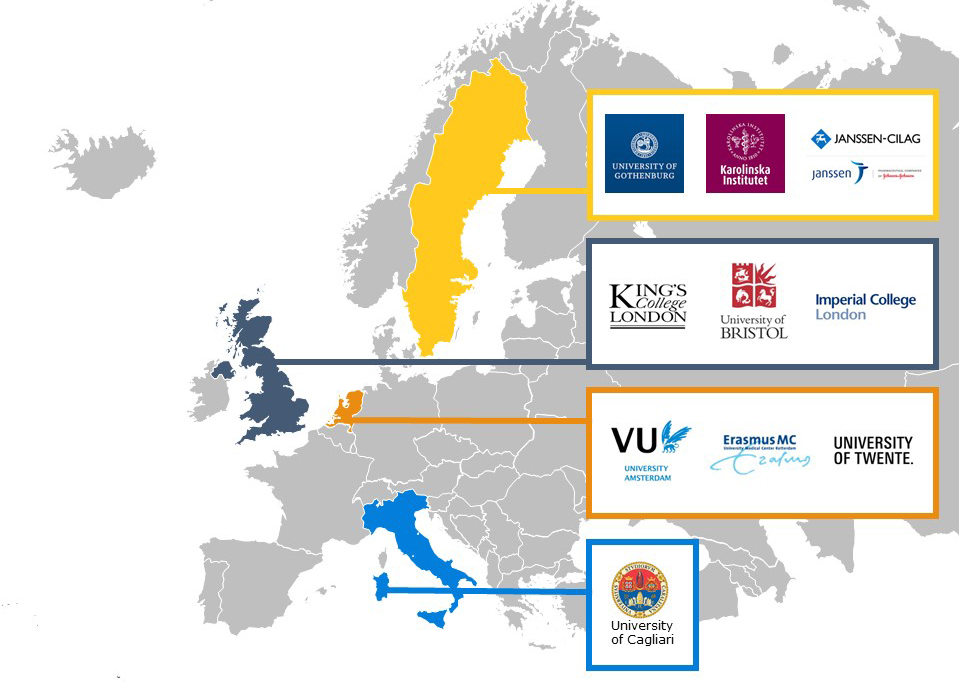In August 2018, Elis Haan and Laura Schellhas had a great opportunity to be part of the Green Man Festival in Wales, UK. One of the areas of the festival is called Einstein’s Garden, which brings scientific research closer to the public. Researchers collaborate with artists to create a playful, interactive and colorful world that illustrates research work and encourages communication between scientists and festival attendees.
Activities offered at Einstein’s garden spanned a wide range of research topics, from fortune telling molecules to build clay brains. Main activities were targeted towards children but often turned out to be a good learning experience for parents as well. The atmosphere at the festival encouraged people to relax, enjoy the music and the beautiful nature, as well as to learn something new.
At our marquee, festival attendees could play an adaption of the Game of Life, called The Choice Challenge. The game incorporated three mini-games, focussing on different stages of life, and highlighted factors which contribute to people’s health choices. In each game, participants could gain points and move along the game board.

The Choice Challenge game board
As our research focus is on health behaviors during pregnancy, we organized the first game, which was about developmental stages of offspring during pregnancy and how this could be influenced by certain behaviours, such as smoking or alcohol use. People were shown colorful illustrations of the unborn child at each trimester and asked to match items with developmental stages depicted on them (e.g. first movements, brain development, hair growth) to the pregnancy trimester. Through this game, we were able to initiate discussions about the potential effects of smoking, alcohol, and caffeine use during pregnancy on children’s development. Our aim was to increase people’s awareness about general developmental stages during pregnancy and to illustrate how the timing of consumption behaviors may differentially impact a child’s life course.

Mini Game 1- Prenatal life
We also had an arts and crafts table, where adults and children could build origami DNA, which gave us the opportunity to explain the role of genes in our health choices.
Overall, it was a great experience, children enjoyed the game and people expressed a lot of interest in our research as well as the overall CAPICE project. In the day to day work of a PhD student, it is easy to get lost in detail and by talking to people from the wider public and answering their questions, made us see the bigger picture and importance of our research again. We hope that we could increase people’s general research understanding, as well as awareness about their own health behaviour and health choices, specifically during pregnancy.
We are very thankful for this opportunity and hope that we can do something similar with the CAPICE team in the future.

The Tobacco and Alcohol Research Group team











